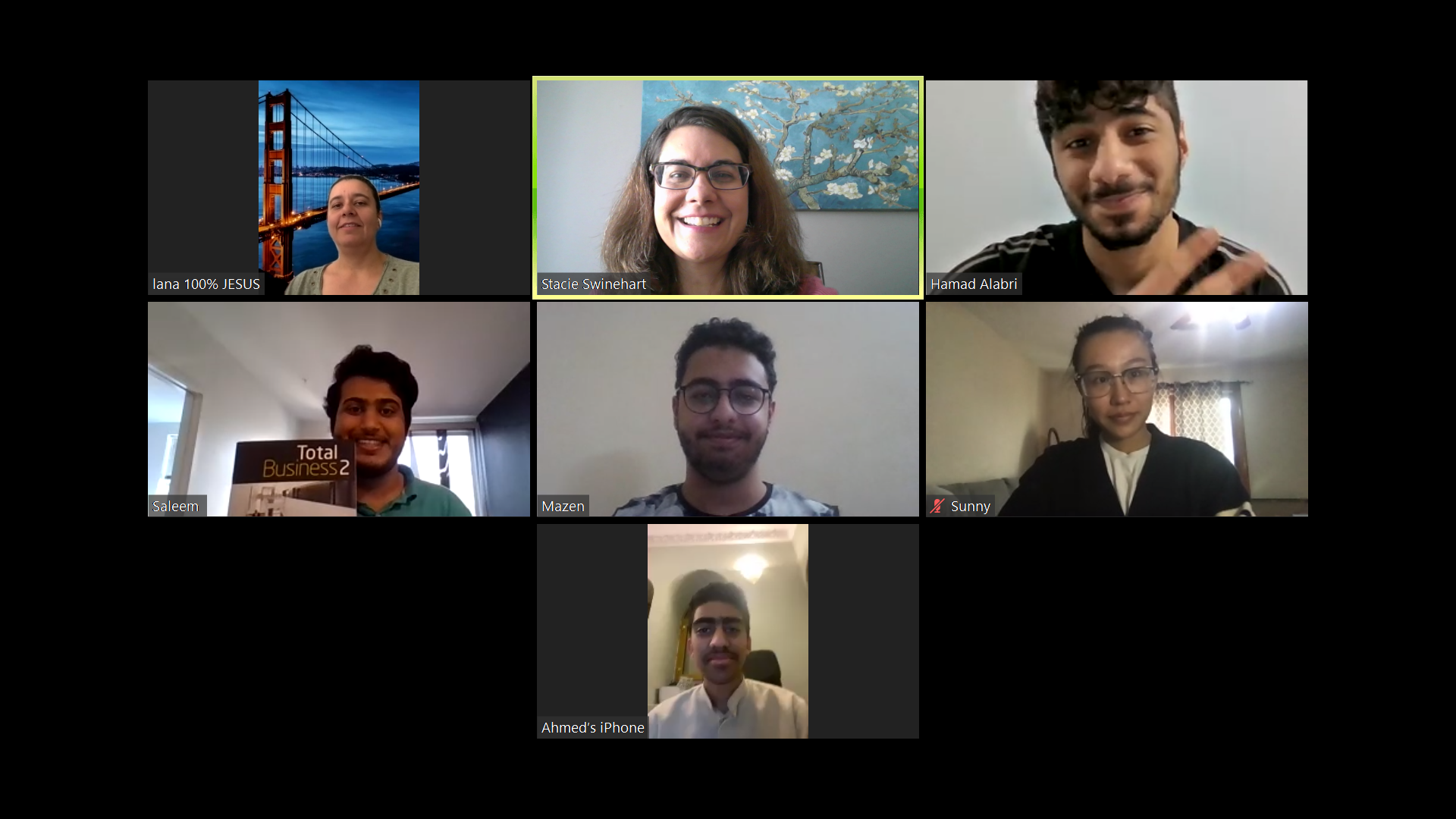
By Chris Dunsmore and Juliee Crocker | Programs in English as a Second Language
At the start of the spring 2020 semester, the Programs in English as a Second Language (PIESL) faculty, staff and students never imagined the turn of events that would make this semester one unlike any other in the 60-year history of the program.
Nevertheless, as the global pandemic caused by COVID-19 grew more widespread, PIESL instructors and students proved more than ready to step up to the challenge of transitioning from in-person instruction to remote learning.
When the university called for all courses to convert to a remote format during a two-week period in mid-March, PIESL instructors were well equipped to adapt since most had previously attended the Summer Institute for Online Teaching hosted by UNL’s Center for Transformative Teaching. In fact, many instructors had already begun experimenting with remote learning techniques in existing classes. One class, “Academic Writing for Graduate Students” (ENGL 887), was even being taught completely online at the beginning of the semester.
According to PIESL lecturer Stacie Swinehart, who teaches grammar and business English classes, “Having taken the Summer Institute for Online Teaching in summer 2019 allowed me to have the knowledge I needed in order to teach successfully online.”
During the remote transition, instructors also received excellent support through UNL’s Information Technology Services, the Center for Transformative Teaching and the College of Arts and Sciences, which offered focused training sessions during the planning period.
The most difficult challenge to overcome was how to hold synchronous sessions when many students had returned to their home countries, resulting in students being in four different time zones. Language classes, perhaps more than other areas, rely heavily on social interaction to drive the development of oral skills and cannot be easily adapted to an asynchronous delivery mode. To ensure all students could attend class at a reasonable hour for their location, PIESL staff worked hard to design a new schedule that allowed for synchronous sessions through Zoom. Though not ideal, the regular video sessions proved enabled students to finish the semester.
“Overall, I was very pleased with how engaged my Intensive English Program students stayed through our synchronous Zoom classes and with asynchronous learning on Canvas,” said Swinehart.
The keys to making the transition work were creativity and patience. Another PIESL lecturer, Crystal Bock Thiessen, decided to lean into the current situation and encouraged students to create a series of “Pandemic Poems” that showcased their feelings and thoughts about the new normal. Bock Thiessen’s students presented the poems to each other during one of their Zoom video sessions.
The PIESL team also leveraged technology to keep their interns engaged with students. Typically, the internship is open to global studies majors and minors who plan weekly activities for PIESL students to socialize and practice their English skills. Despite the loss of in-person meetups, however, the interns successfully continued boosting language development and morale by connecting via regular conversation hours on Zoom.
As the semester came to a close, the PIESL office prepared to host their usual, in-person celebration virtually. The celebration is a chance each semester for PIESL students to celebrate their accomplishments, including an awards ceremony that honors students for their academic achievements. This semester, director Chris Dunsmore used Zoom to video conference the students for the ceremony.
“I am so proud of our faculty, staff, and students for your perseverance during this time of great challenge,” Dunsmore told the ceremony attendees. “You should all be proud of what you have accomplished.”
Dunsmore was incredibly pleased that nearly everyone was able to turn out for the virtual ceremony on April 23. In addition to the presentation of the awards, the PIESL team also used virtual breakout rooms to connect with students in small groups and get feedback on how the remote learning went for them. Overall, though they enjoyed being able to relax for classes in the comfort of their own rooms, PIESL students are eager to return to the in-person instruction planned for the fall.